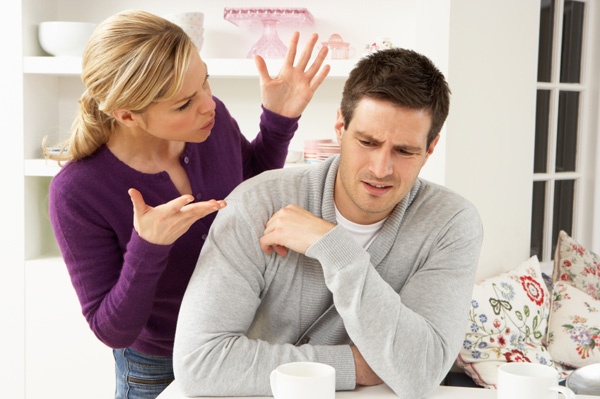Are men really as open and honest about their age as they claim to be? Delving into the sensitive topic of age, this article uncovers the truth behind why men often feel the need to hide their true age. From societal pressures to personal insecurities, there are several factors that contribute to this phenomenon.
In a society that constantly glorifies youth and places a premium on staying forever young, men often find themselves grappling with the fear of being judged or dismissed based on their age. The pressure to conform to unrealistic standards of youthfulness can lead to anxiety and self-doubt, leading men to conceal their true age.
Adding to the mix are personal insecurities and concerns about how age might impact their personal and professional lives. Men may worry that disclosing their age will lead to discrimination in the workplace or even in their personal relationships.
In this article, we will explore the reasons behind these tendencies and seek to shed light on the societal expectations and pressures that often drive men to hide their true age. Join us as we uncover the honest truth behind this common phenomenon.
Society’s expectations of men and aging
Society places immense expectations on men when it comes to aging. While women are often praised for their wisdom and grace that comes with age, men are expected to maintain their youthfulness and vitality at all costs. The media bombards us with images of successful and attractive men who seem to defy the aging process, further fueling the notion that youth equals success. This constant reinforcement of unrealistic standards can have a profound impact on how men perceive their own age.
Men are often judged based on their physical appearance, and the pressure to maintain a youthful appearance can be overwhelming. From skincare products to hair loss treatments, men are bombarded with advertisements that promise to reverse the signs of aging. This constant reminder that aging is something to be feared can lead to a sense of shame and embarrassment about one’s true age. As a result, men may feel compelled to hide their age in order to avoid being seen as less attractive or valuable.
The pressure to appear youthful also extends to the workplace, where ageism can be a significant issue. Older employees may fear that disclosing their age will lead to being passed over for promotions or opportunities. In a society that values youth and innovation, older workers may worry that their age will be seen as a liability rather than an asset. This fear of age discrimination can push men to hide their true age in order to preserve their professional standing.
The pressure to appear youthful
Cultural factors play a significant role in shaping men’s perception of aging. In many cultures, youth is associated with strength, virility, and power, while old age is often seen as a decline in these qualities. Men may feel pressure to conform to these cultural ideals, fearing that revealing their true age will challenge their perceived masculinity.
Traditional gender roles also play a role in how men view aging. Men are often expected to be providers and protectors, and showing signs of aging can be seen as a sign of weakness. This pressure to maintain a youthful and strong appearance can lead men to hide their true age in order to uphold these societal expectations.
Furthermore, cultural norms around beauty and attractiveness also contribute to men feeling the need to hide their age. In many cultures, women are expected to age gracefully, while men are expected to maintain their youthful appearance for as long as possible. This double standard can lead to feelings of inadequacy and the need to hide one’s true age.
Cultural influences on men’s perception of aging
The need to hide one’s age can stem from deep-seated psychological reasons. Aging is often associated with mortality and the realization that one’s time is limited. Men may fear that revealing their true age will force them to confront their own mortality, leading to feelings of anxiety and existential dread.
In addition, there may be a fear of being seen as less desirable or attractive as one gets older. Men may worry that their age will make them less appealing to potential partners, leading to feelings of inadequacy and self-doubt. By hiding their true age, men may hope to maintain the illusion of youth and desirability.
Moreover, societal pressure to achieve certain milestones by a certain age can also contribute to the need to hide one’s age. Men may feel ashamed or embarrassed if they have not achieved societal expectations such as marriage, career success, or financial stability by a certain age. Concealing their age can be a way to avoid judgment or scrutiny.
Psychological reasons for hiding age
Ageism, the discrimination or prejudice based on a person’s age, can have a profound impact on men. While ageism affects people of all genders, men may experience unique challenges due to societal expectations and pressures. Ageism can manifest in various ways, from workplace discrimination to personal relationships.
In the workplace, older men may face challenges such as being passed over for promotions, being assigned less important tasks, or even being let go due to perceived irrelevance. This can have a negative impact on their self-esteem and overall well-being. The fear of ageism can lead men to hide their true age in order to avoid these potential consequences.
Ageism can also impact personal relationships. Men may worry that disclosing their age will lead to being perceived as less desirable or compatible. This fear of rejection can lead to a reluctance to reveal one’s true age, creating a barrier to forming genuine connections.
The impact of ageism on men
It is crucial for men to embrace and accept the natural process of aging. Aging is a part of life that should be celebrated, as it represents growth, wisdom, and experience. By hiding their true age, men deny themselves the opportunity to fully embrace and appreciate the journey that aging brings.
Embracing aging also means challenging societal norms and expectations. Men have the power to redefine what it means to age gracefully and to challenge the notion that youth is the ultimate measure of worth. By embracing their true age, men can inspire others to do the same, creating a more inclusive and accepting society.
The importance of embracing and accepting aging
There are several strategies that men can employ to combat age-related insecurities and feel more comfortable embracing their true age. First and foremost, it is important to practice self-acceptance and self-love. Recognize that age does not define your worth or value as a person. Focus on your accomplishments, experiences, and personal qualities that make you unique and valuable.
Building a support network of friends and loved ones who value and appreciate you for who you are can also help combat age-related insecurities. Surround yourself with positive influences who celebrate aging and reject societal expectations.
Engaging in self-care activities that promote physical and mental well-being can also boost confidence and self-esteem. Exercise regularly, eat a healthy diet, get enough sleep, and engage in activities that bring you joy and fulfillment.
Strategies for combating age-related insecurities
Society has a role to play in promoting a healthy and positive attitude towards aging in men. By challenging ageist stereotypes and celebrating the diversity and wisdom that come with age, we can create a more inclusive and accepting society.
Media representation plays a significant role in shaping societal attitudes. Media outlets should strive to showcase a diverse range of ages and celebrate men of all ages for their accomplishments and contributions. By highlighting positive and inspirational stories of older men, we can challenge the notion that youth is the only measure of success.
Education is also key in combating ageism. By promoting awareness and understanding of ageism and its impact, we can create a more empathetic and inclusive society. Ageism should be addressed in schools, workplaces, and communities, fostering a culture of respect and appreciation for people of all ages.
Promoting a healthy and positive attitude towards aging in men
In conclusion, there are several factors that contribute to why men often feel the need to hide their true age. Societal pressures, personal insecurities, cultural influences, and ageism all play a role in shaping men’s perception of aging. However, it is crucial for men to embrace and accept their true age, as it represents growth, wisdom, and experience. By challenging societal expectations, practicing self-acceptance, and promoting a positive attitude towards aging, we can create a more inclusive and accepting society for men of all ages.
Conclusion
Society’s obsession with youthfulness is not a new phenomenon. From glossy magazine covers to celebrity endorsements, the media bombards us with images of flawless, ageless men who seemingly defy the natural process of aging. This constant reinforcement of youth as the ultimate measure of attractiveness and success creates a toxic environment where men feel compelled to hide their true age.
The fear of being perceived as “old” or “past their prime” is deeply ingrained in our culture. Men are bombarded with messages that associate youth with vitality, energy, and desirability. As a result, they feel pressure to maintain a youthful appearance and are often reluctant to disclose their true age for fear of being judged or dismissed.




